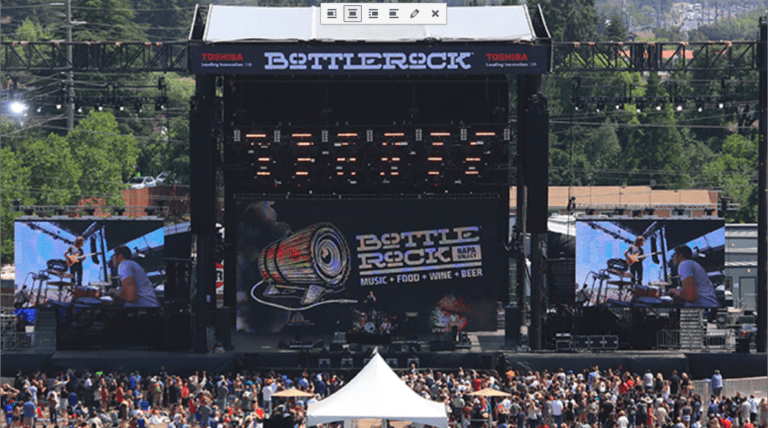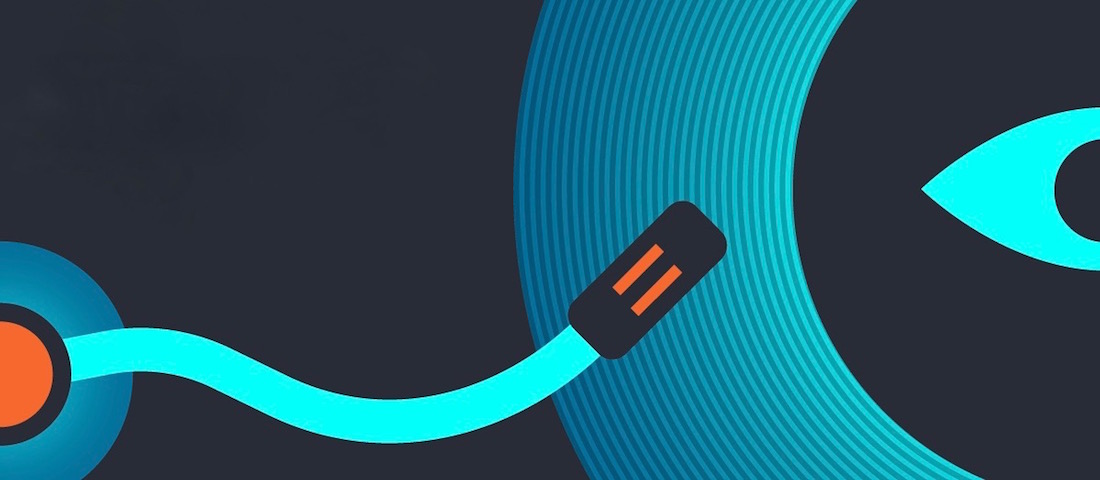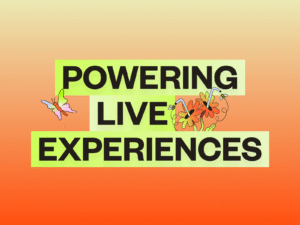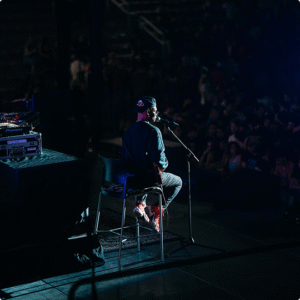BottleRock Napa Valley festival is unlike any other festival in the world. Featuring a mix of incredible music, wine, food, and community, BottleRock appeals on many levels to the hometown Napa crowd while bringing a broad range of visitors to the Valley every year. Eventbrite’s Shana Fong sat down with Dave Graham, co-founder of Latitude 38 Entertainment and producer of BottleRock, to chat about what makes the festival so special, and the similarities between running a festival and running a start-up.
Shana Fong:You went from attending the very first BottleRock festival in 2013 to acquiring the BottleRock brand and running the festival in the second year. What was your thinking behind that move?
Dave Graham: All three of the partners are Napa folks and we all attended [the first year] and had a great time. You can imagine growing up as a kid from a small town, and it didn’t have a lot to offer. One day, you go into your own town – your own backyard – and The Black Keys are there, Kings of Leon, and all these really cool bands and amazing restaurants like Morimoto. We found ourselves sitting there listening to The Black Keys and eating some Morimoto ribs and having some amazing Napa cabernet, and said, “Wow, this is happening in the town that we grew up in.”
That was extremely exciting for us. Everyone was ecstatic that this was happening and the entire town was intoxicated afterwards… until they started to figure out that there was so much debt owed. My partners and I saw an opportunity to keep this thing local, to make the festival happen in 2014, and to eliminate some of the debt that was owed by the previous promoters. We accomplished all three things in a short period of time – 76 days.
SF: You and your partners don’t come from the typical backgrounds that other festival promoters do. You started companies before getting into the festival space. How is running BottleRock similar to starting and running companies?
DG: As we looked at the opportunity, one of the things we saw was demand to attend the festival. People bought tickets in 2013. A lot of them. When you start companies, you think that there might be demand but you aren’t sure until you go on sale. Prior to starting our promotions company we were able to see that there was demand and that gave us a head start. Second, we saw that there were some basic, fundamental business best practices that weren’t followed. We felt like if the previous promoters hadn’t made these mistakes, the festival would’ve worked. Plus, we saw that there was something that differentiated BottleRock from other festivals: its connection to Napa and the Napa Valley brand promise. If we were simply going to be competing on the basis of lineup, we would not have jumped into this.
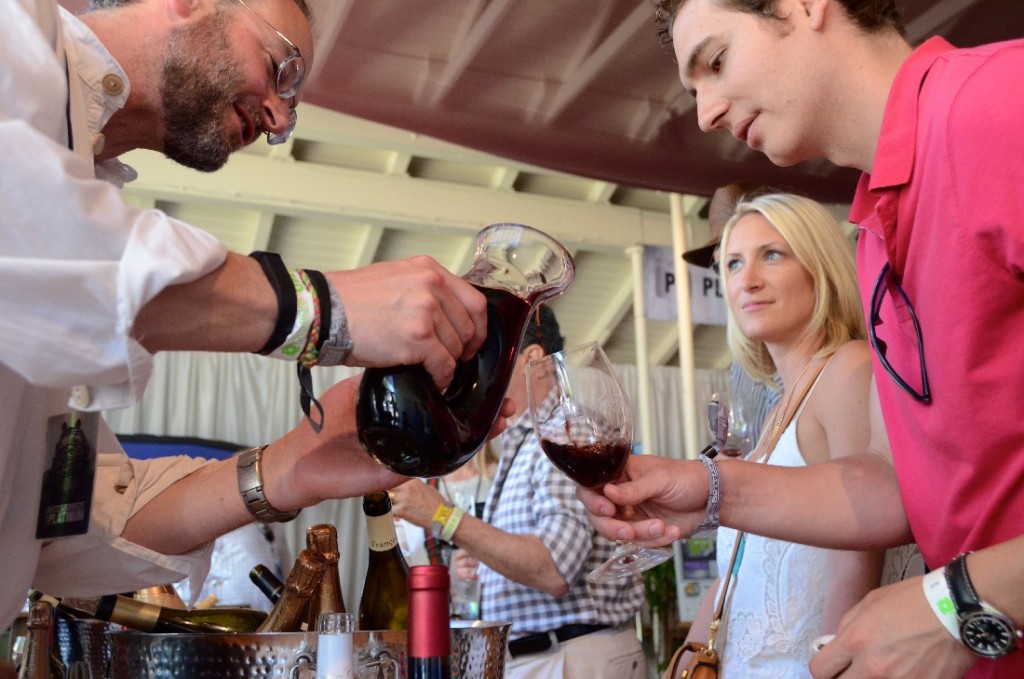
SF: With the festival being in Napa and featuring a bevy of fine food and wine offerings, I imagine the crowd you attract is a little different from other festivals. Who comes to BottleRock?
DG: Half of the demographic is 18 to 35 and the other half is 35 and up, who you don’t typically ever see at a major music festival. If you were to talk to any promoter out there, they might say that catering to a 40-something is the kiss of death because your festival is competing with soccer practice, life, family, and other distractions. I wouldn’t disagree with that premise, but I will say that those 35-and-ups – in particular in the Bay Area – have a connection to food and wine and were already familiar with the Napa Valley. We gave them yet another reason to come up to Napa and another way to experience amazing food and wine and weather, just by marrying it to world-class music.
We found a festival that can be differentiated and a customer base that hadn’t been addressed. There’s a niche play we’re addressing and we’re happy we’ve tapped into this untapped customer segment.
SF: BottleRock definitely stands out from other festivals through this point of difference – but other festivals are starting to feature 360 degree experiences too. It’s about curating an awesome lineup, and now offering fine food and beverage options. How do you envision continuing to push BottleRock to stand out from the rest of the crowd?
DG: It’s about creating an experience that’s different from other festivals. Take wine as an example. If you were to go have another glass of wine at other festivals – if it’s available – you’d likely have to go into a large tent with multiple wine booths and those wine booths and brands would be displaying themselves in a cookie cutter way. The winery wouldn’t have the ability to market itself in a way that it normally does nor provide the kind of experience for that it would be able to provide at their own winery.
At BottleRock, each winery has its own 20×20 tent and brings in its own flooring, furniture, decor, so that their brand actually comes across at our festival. Anyone that comes can visit 30 wineries in a way that they would experience them at the actual wineries themselves. There are chandeliers, velvet couches, hardwood flooring along with the wine maker and winery owner hanging out to chat with. It makes everyone feel as if they were VIP without having to buy a VIP ticket – this experience is for everyone.
If you come to Napa for a day, best-case scenario you can visit three or four wineries. At BottleRock you can visit 30 wineries in a day. If you want to have a more elevated experience, you can roll Platinum and you’ve got Michelin chefs cooking you food, master sommeliers pouring you exclusive wines, access to the stages, and meet-and-greets with the performing artists.
World-class music is always going to be our festival. It’s about what else is there.
SF: The more you describe the atmosphere and who goes, the more I wonder if it could happen anywhere else other than Napa.
DG: We wonder that, too. If we felt like we could scale this, we would. Destination festivals with something else to offer than the lineup are what we’re seeing succeed right now, [rather than] franchising out brands. If we felt like we were going to have to compete on the lineup, there’s no way we can compete with Outside Lands and Coachella. Our lineup is awesome, but that’s not a repeatable, sustainable business model in my mind. You have to be able to tell a better story, provide a better experience.
SF: You use data to better understand who your customer. How are you incorporating data and insights to help make BottleRock a better experience for your attendees?
DG: We didn’t have a lot of data to work with our first year, having inherited the brand from the previous promoters. What we were quickly able to do is understand the kinds of bands that our attendees are interested in. We understand the customer base that’s coming to the Napa Valley in general and understand the music that’s most in line with the expectation that they have. That’s all driven off of data. Then there’s this “finger on the pulse” – more qualitative than quantitative – that comes into the mix when you’re catering to the North of San Francisco crowd.
Imagine Dragons is the perfect example. They’ve got credibility with your 18 to 30 year olds. Yes, Imagine Dragons has played the Bay Area a lot but they had a new album release in February, so the cycle was perfect for us given that our festival takes place at the end of May. Add to that the North of San Francisco crowd (Sonoma, Napa, Santa Rosa, Marin) isn’t going to go the Oakland Coliseum to see Imagine Dragons play. In Napa, there are eight to ten year olds that love Imagine Dragons and so do their parents. Now you have a whole group of people in Northern California that have never gone to see Imagine Dragons, but because of the unique and friendly layout of our venue and the location, they’ll go now – and go together to see them.
There are both qualitative and quantitative analysis that go into choosing bands, even in picking the genres. You’re in Norcal so you have to have something for everyone. From jam bands, rock, indie rock, pop, jazz, reggae, etc… There’s a bit of a secret sauce to it and we’re getting that recipe down.
SF: After a couple years of throwing one of the best festivals in California, could you ever go back to running a more traditional company?
DG: Absolutely. We love what we’re doing now. We’re entrepreneurs at heart and I wouldn’t rule out starting other opportunistic businesses, both within the music industry and outside. I love creating something from nothing.
From day one, we told everyone that this is a startup, we’re going to treat it as a startup, and we’re going to operate on that pace, from a cost perspective and from a focus perspective. Brutally prioritize that which is most important to your businesses success, be lean and mean, and don’t be afraid of failure.
Want to read more industry perspectives? Check out 2019 Music Trends report for insights from 19 industry tastemakers.
